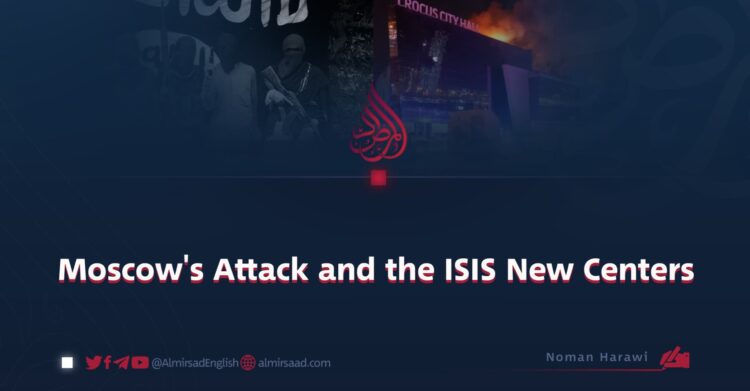Noman Harawi
The Caucasus was declared as a province in the organizational structure of ISIS in 1394 and was affiliated with the office of Al-Farooq.
The regions of Russia, Georgia, Azerbaijan, Chechnya, and Dagestan were affiliated with the Caucasus province under the Al-Farooq office of ISIS organizational structure.
In Moscow, where the recent attacks were carried out, it remains unknown which branch of ISIS will claim responsibility – the Caucasus or Khorasan. Furthermore, there is uncertainty surrounding whether ISIS indeed carried out the act. Should ISIS be deemed responsible, the question arises whether it was the authentic ISIS entity or a rogue faction.
Fake Daesh refers to individuals who have been cultivated by the intelligence agencies of certain countries. They maintain communication with genuine Daesh members and carry out tasks in alignment with their directives to establish credibility within the authentic Daesh network. The primary objective of these manufactured ISIS entities is to serve as a tool against their adversaries and to attribute their actions to the real ISIS organization.
Among the attackers identified in the Moscow incident, four hail from Tajikistan. Tajikistan now serves as a launchpad for dangerous assaults, with ISIS orchestrating operations and potentially targeting major global capitals, leading to widespread casualties.
Following their defeat, ISKP has now established operational bases in Afghanistan’s vicinity, allowing them access to various resources. From these bases, they strategize assaults within Afghanistan, the region, and globally. The recent attack in Kandahar serves as a notable illustration of this tactic.
Despite being technologically advanced and possessing comprehensive monitoring capabilities over human communications, world nations only provide limited information about such incidents occurring elsewhere in the world, and this information is disseminated briefly.
ISIS carries out such attacks neither for the sake of Islam nor for the sake of Muslims, but the aim of such attacks is to indirectly fulfill the orders of ISIS planners, which they issue to strike at their enemies.
If the ISIS recruitment hubs near Afghanistan are left unaddressed by the world, the world may witness more brutal attacks akin to Moscow in the near future, experiencing the bitter consequences of inaction.
